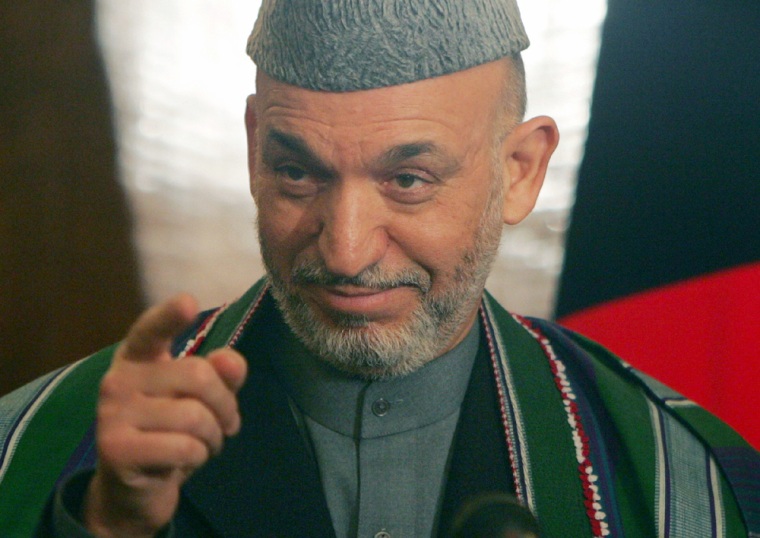President Hamid Karzai said an amnesty for former drug smugglers was “not a bad idea” if it could help eliminate Afghanistan’s booming narcotics industry, but he suggested Wednesday it was far from becoming government policy.
Under pressure from the United States and Europe, Karzai has called for a “holy war” against Afghanistan’s drug business, the world’s largest, and made it a priority for the five-year term he won in landmark September elections.
“It’s not a bad idea to take people away from criminal activity,” Karzai said. “But anything like that has to be done with very careful thought, with very careful guarantees, with absolute surety that this is going to discourage trafficking.”
Afghan poppy cultivation jumped an estimated two-thirds last year and supplied 87 percent of the world’s opium, the raw material for most of the heroin sold to young addicts in areas such as Western Europe and Russia.
The U.N. valued the trade at $2.8 billion, or more than 60 percent of Afghanistan’s 2003 gross domestic product, and warned that the country was turning into a “narco-state.”
Two Afghan ministers told The Associated Press last week they were weighing whether to offer traffickers amnesty from prosecution if they help stop the cultivation of opium poppies and invest their wealth in reconstruction.
U.S.-backed crackdown
Some officials say such a program might be effective after a U.S.-sponsored crackdown on smugglers, refiners and corrupt officials expected in the next few months. Plans also are being made to destroy poppy fields and help farmers grow licit crops.
Officials also must untangle the ethical implications of pardoning individuals who have exploited impoverished Afghan farmers and contributed to the suffering of thousands of young addicts in the West.
The drug trade is believed to involve warlords and militia commanders suspected of human rights violations and Taliban militants.
“Under no circumstances should the government turn a blind eye to these abuses in the name of fighting the drug trade,” said John Sifton of the group Human Rights Watch.
Calls for more study
Karzai said any amnesty would only be open to “former” traffickers and the idea needed to be explored further before it could be discussed in his Cabinet.
“It has to be studied extremely carefully, and it’s not on the agenda at this point,” Karzai told reporters after meeting with Senate Majority leader Bill Frist and other U.S. lawmakers.
Frist, after meeting Karzai, praised last year’s elections.
“Afghanistan, in many ways, was freedom and democracy’s first victory in the war on terror, and for that we are much appreciative,” Frist said. “We will be in the future a continued reliable partner, a long-term partner.”
The delegation — which included Senate Majority Whip Mitch McConnell, R-Ky., Sen. Norm Coleman, R-Minn., and Sen. Mike DeWine, R-Ohio — was scheduled to inspect soldiers from the U.S.-trained Afghan National Army and visit a children’s hospital.
